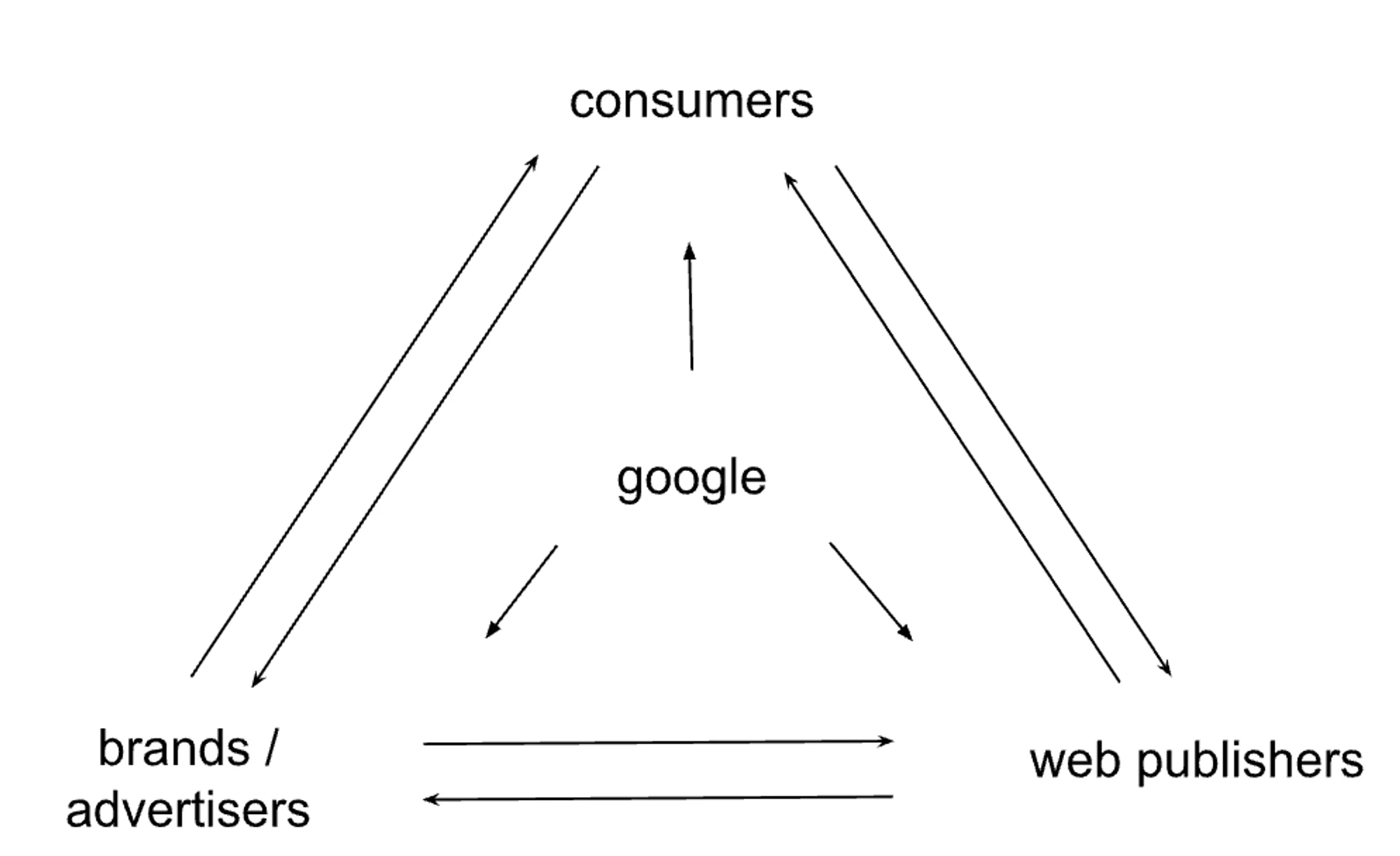Original title: The Fragmentation of Search
Original author:Grace Carney
The market structure of search is currently being reshaped. Horizontal and LLM-based search proxies like ChatGPT and Perplexity are putting unprecedented pressure on search engines like Google. Cracks are beginning to form and new search possibilities are rapidly sprouting.
USV anticipates that this fragmentation will be an ongoing process and that a number of new opportunities will emerge in the search space as a result. Were particularly interested in opportunities to empower consumers and web publishers who have long been dissatisfied with the unfair Google model, or who may have become uncomfortable with search agents becoming the new gateway to our information.
Before ChatGPT, Google was synonymous with search. Its concentrated market power means it can make unilateral decisions that could adversely affect consumers, online publishers and advertisers.

Were trying to find businesses that have a clear positioning that is in opposition to Google. One such company is DuckDuckGo, which has built a search business that protects consumer privacy and currently generates more than 3 billion searches per month. However, currently the Google search engine still dominates.
Now, LLM-based search agents are causing various new changes. By providing users with faster and better answers to their questions without the need to browse page after page or even click on dodgy ads, search proxies unlock a shortcut for consumers to find information precisely without completely obscuring the publisher of the page. This is undoubtedly taking away the query business from search engines such as Google and Bing, and is also replacing web page publishers who provided training data for ChatGPT but did not receive traffic from ChatGPT.
Perplexity, Arc Search, Pi, and many other similar companies are all built on different LLMs, and they are all vying to become the trusted name in the pan-search agency space. In the past, one tab was enough for my internet searches, but now I often have three or more tabs open.
Before ChatGPT, we looked like this:

Since using ChatGPT, we are like this:

This fragmentation of search raises some key questions:
What kind of business model will pan-search agents come up with to cover the financial deficit piling up in computational and inference costs? Especially once the AI hype bubble subsides, so will the billions of dollars in venture capital backing these platforms.
Are consumers willing to pay for search? If the answer is no, how long until we see targeted ads creeping into the responses of these search agents?
If search engines disappear, and with them SEO and advertising revenue, will there be a livelihood problem for web publishers and content creators? Will there be the same problems that “print newspapers” faced when digital publications first emerged?
What will happen to pan-search agencies if they refuse to include web publishers in their economic models?
Even if a search agency agrees to pay AI royalties to the publisher of the web pages, if no one actually sees them (agencies often extract information from individual web pages, summarize them, and provide the summary directly to the user, so the original web page is blurred), Why should web publishers bother creating new websites? Will the introduction of financial incentives change the type of content we are used to seeing on the internet?
All search startups will face these issues, and as a result they will continue to fragment into new and distinct behaviors and platforms. Like DuckDuckGo, were excited about platforms that can rival Google and Microsoft by creating business models that they cant compete with (unless they revolutionize themselves).
We can imagine that these platforms will reward web publishers and content creators to keep the Internet colorful and colorful. Possibly through financial incentives such as subscriptions, although we believe Crypto has a greater opportunity to create new monetization models for AI-native content. Cryptocurrencies, NFTs, and low fees or even free minting will all act as sponsorships. These rewards may not be financial, but rather build a community-based network of content creators based on social tokens.
Beyond this, there will be more consumer-centric models. Such as personal knowledge agents, which enable consumers to curate their own unique data sets that they can revisit, mine, and explore over time.
In the future, there will be different types of AI-native vertical search platforms that rely on the randomness of LLMs and include exploration as a feature. They will especially shine in areas such as travel, music, books, fashion, second-hand goods and interior design. Today, text-based chat is the primary user interface for Google Search. But we expect it will shift towards more diverse forms such as photos, audio, video and even biometric data. Just like iNaturalist allows us to query birdsong, the new platform will leverage advanced technologies to interpret richer forms of data to provide a more personalized and immersive search experience.
All in all, its an interesting time to be in the search business. LLMs are changing the game and unlocking new ways to access and interact with information. We are also deeply excited about new species that may be about to be discovered.










